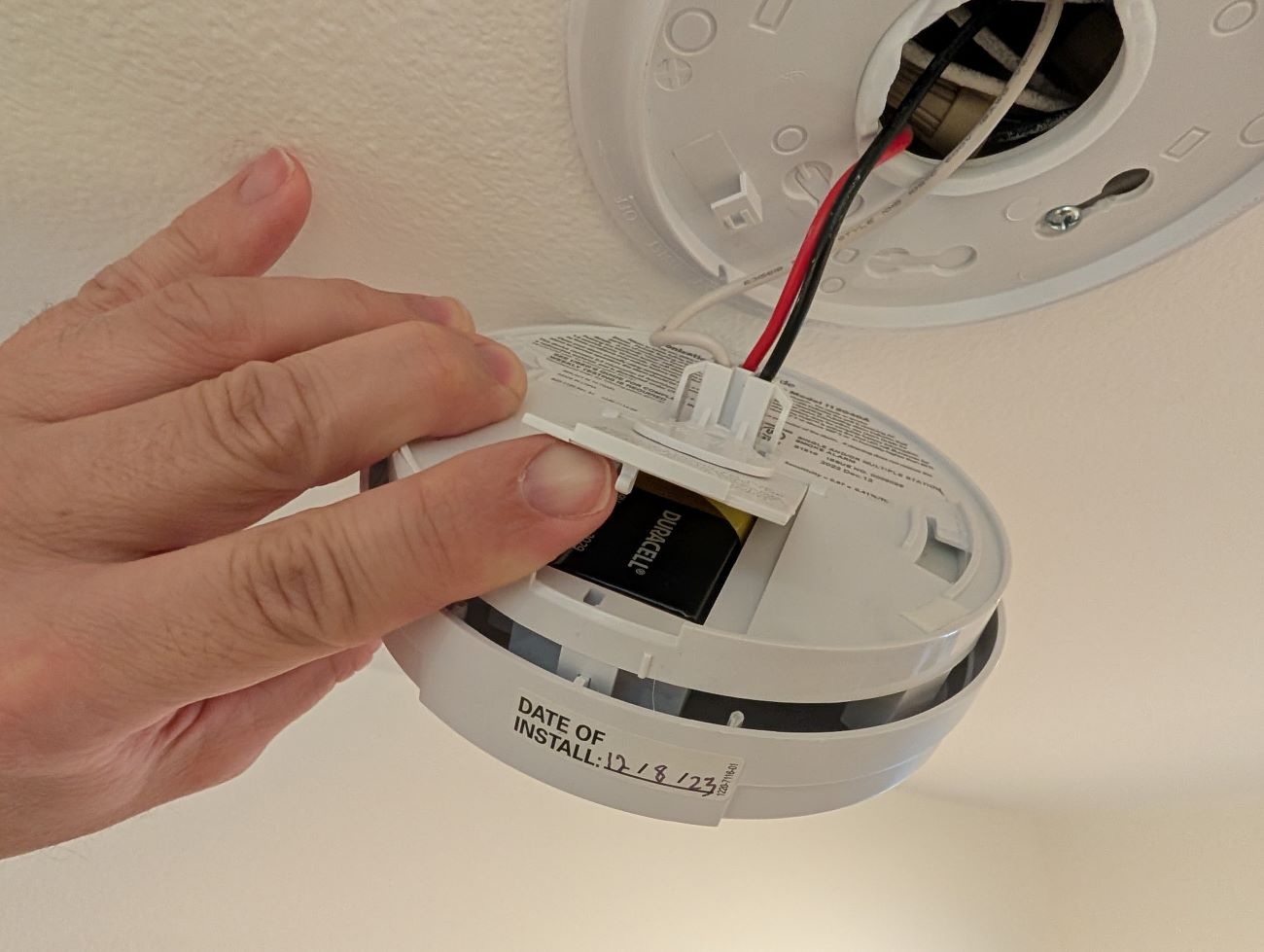Daylight Saving ends November 3. Turn your clocks back and replace and safely dispose old batteries.

Daylight Saving time will end for 2024 on Sunday, Nov. 3, when we "fall back," turn our clocks back an hour, and gain an extra hour of sleep. As you move your clocks back an hour, it’s a good time to also check and change the batteries in your devices - especially smoke detectors.
Why replace batteries in your smoke detectors every year?
A working smoke detector can mean the difference between life and death. The death rate is twice as high for home fires where the smoke detectors are either absent or not working, according to a 2019 report by the National Fire Protection Association.
Need to replace your smoke detector entirely and dispose of an old one? Find out how to do that through our hazardous product library.
How to safely dispose or recycle used batteries from your devices
Many of the materials in batteries are recyclable, but batteries should never go in your home recycling bins or in your garbage. Batteries can catch fire or explode when crushed or combined with other materials, so they must be handled separately and with special safe disposal practices.
To safely dispose or recycle batteries, you have a few options:
- Take them to a nearby hazardous waste collection site in King County.
- Arrange for a special item pick-up through Seattle Public Utilities (if you are a Seattle Public Utilities customer).
- Work with a local battery recycling organization like Call2Recycle, a battery stewardship organization that offers resources and maps to help you find safe and accessible battery disposal location.
Why shouldn’t I toss batteries in the trash?
If you live in an area that is serviced by Seattle Public Utilities, it’s against the law to toss your batteries in the trash. There are other good reasons for all of us in our region to safely dispose and recycle batteries, too. Here are a few:
- Protect our environment: Batteries contain hazardous materials like lithium, mercury, cadmium, lead, and acids that can pollute the environment and our groundwater if they're burned or left to lie in landfills after being thrown away. Recycling batteries keeps these materials out of our environment and protects human health.
- Prevent fires: Batteries can be a fire hazard, especially when they're old or damaged. Recycling batteries safely keeps them out of the trash, where they could start fires.
- Conserve resources: Recycled batteries can be reused to make or power new products, which saves the limited natural resources used in batteries.
- Support the clean energy transition: Batteries contain critical minerals that can be extracted to make new batteries for electric vehicles and renewable energy storage systems.
So, this Nov 3rd, don’t simply turn your clocks back. Take an extra step to check your devices’ batteries, then replace and safely dispose your batteries. A few minutes goes a long way in protecting human health and the environment in our region from hazardous exposures.
 Translate
Translate